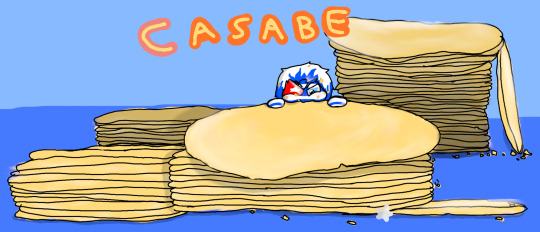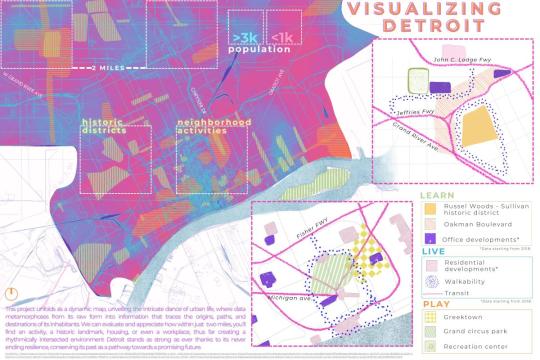#casab
Text
oh, and the verbiage shift around (C)ASAB! is a problem also!
original: "jordan was CA[X]AB."
passive voice, the subject is acted upon by an external agent (the medical industrial complex) in the past
contemporary 2022: "jordan is A[X]AB."
copula verb, = equals sign, the subject IS this
original: "people who were CA[X]AB are…"
same as before, passive past tense event done by external agent
contemporary 2022: "A[X]AB people are..."
adjective that cannot be changed because it describes an event that happened, frontal adjective that follows identity-first language patterning
like. okay here's my favorite link on identity-first v person-first language. but let me elaborate a bit here.
identity-first language is for situations like Autistic folks (and Deaf folks, Mad folks, Disabled folks, and others) resisting being called "a person with autism" because these are integral parts of ourselves that cannot be separated - being autistic permeates the whole identity and sense of self, there is no way to "cure" and get to "the real person underneath." there is Deaf culture, and people who are members of it do not want called "a person with deafness."
by contrast, person-first language was created for distancing an attribute and emphasizing one's humanity first, as in "a person with disability." a parallel in trans communities is "a person with transitioning experience" - which is important, because not everyone considers themselves to be trans (because =, copula verb BE/IS, indefinite/forever) and that is okay! why would you if you don't relate or have anything meaningful to you in common - words are tools for connecting
now.
"A[X]AB person" is following the identity-first pattern of communicating "this is an integral attribute that cannot be separated from who i am and is important to me, do not distance it from me in conversation."
plus it's often "A[X]AB trans person," putting ASAB before the actual identity-first adjective trans!
i can definitely opine about how starting with A[X]AB doesn't resist the status quo in the way that identity-first language like Autistic does...
but more simply: hey, uh, some people prefer person-first language and that's okay. people relate to descriptors, words, attributes, experiences, traits, etc differently.
and: be intentional about your choice between identity-first and person-first, and aware of who that puts off
personally, "A[X]AB person" pings gender essentialism flags for me. like saying "female woman," y'know?
#CASAB#AFAB#linguistics bloggin#identity-first language#person-first language#not claiming or looking into any intentionality behind the shift to 'AXAB person' pattern#but also it is absolutely something radfems would and do capitalize on
68 notes
·
View notes
Text
Il prato (Paolo & Vittorio Taviani, 1979)
Sorprende gratamente a estas alturas de su carrera, y sobre todo tras el éxito obtenido por el hábil y engañoso Padre Padrone (1977), la mentalidad un tanto ingenua, de primitivos o novatos, con que los hermanos Taviani han hecho El prado (II prato, 1979). Quizá se olvide que son directores de televisión más que de cine, y que eso puede explicar, en parte, tanto su ocasional astucia como su periódico redescubrimiento de la inocencia ilusionada de los cineastas aficionados o amateurs (que, al menos, tienen afición y amor por lo que hacen, al contrario que los funcionarios a sueldo). Por ejemplo, cogen unos niños, una actriz inexperta —aunque hija de Ingrid Bergman y Roberto Rossellini— y un decorado, y ruedan a ver qué sale, con curiosidad y esperanza: a veces suena la flauta —y no sólo por casualidad—, otras alguien desafina, se produce un bache o la escena no cuaja, pero al menos hay cierto riesgo, cierto suspense al que el espectador no es insensible. No es cine prefabricado.
II prato es, por eso, una película misteriosa, brusca («tiemblo porque te amo»), con tiempos muertos, de estructura vacilante y tanteadora que no sabe desde el principio dónde va a ir a parar. Está rodada con una conmovedora falta de soltura que resulta emocionante, porque se nota que no está hecha por control remoto, con pinzas articuladas y ordenadores, ni por delegación, sino que hay un contacto físico, manual, artesano, con la cámara, con el decorado.
Se siente que estaban allí, que se empaparon cuando cayó una tormenta, que sudaban, que miraban el paisaje entre toma y toma —y no sólo a través del visor—, que había una relación personal entre los directores y los actores (que apenas lo son). Tal vez por eso el ritmo, las composiciones y los encuadres —la enunciación toda de la película—, no tratan de imponerse al espectador: los Taviani muestran cosas, las retratan una tras otra sin darles su sentido definitivo, sin condenar al público a aceptar o rechazar, sin más opción, su punto de vista. Eso daña el ritmo de la película, un tanto dispersa y falta de medida —sobre todo al final, que se estira excesivamente o se diluye—, pero permite integrar sucesos imprevistos —como el árbol derribado por la tormenta que entra por la puerta— y manejar tópicos (jóvenes, niños, etnología, teatro popular, retorno a la ciudad natal, campo frente a ciudad, desencanto vital) sin explotarlos pesadamente y concentrarse, en cambio, en las miradas y sonrisas de Isabella Rossellini, de asombroso parecido —aunque más frágil— a su madre (sobre todo cuando se muestra inquieta o angustiada), llena de gracia y encanto, o incluir algunas impresionantes imágenes de Germania, anno zero sin que resulte pedante.
Hay, además, como siempre en los Taviani, un curioso empleo poético del espacio, de la voz en off y del paisaje, que a veces da resultados sorprendentes. En El prado llama la atención la abundancia de ventanas abiertas al campo, a la calle, al aire libre, al ruido o el silencio exterior, a la existencia de otros personajes que actúan como invitaciones a salir de la película, a no encerrarse en el cine, a no dar demasiado crédito a lo que sucede en la pantalla, que no es más que un reflejo parcial y fragmentario. Del mismo modo, la desconexión evidente entre planos y contraplanos parece indicar el carácter arbitrario o manipulador que, en cualquier caso, tiene la elección de un encuadre o una decisión de montaje. Es decir, que los Taviani no se dan —al menos esta vez— demasiada importancia. Esta tranquila modestia, que no huele a falsa, explica la extraordinaria frescura de El prado, a veces un poco «verde» todavía, pero de una falta de elaboración y suficiencia que resulta simpática, que mantiene intrigado, interesado y despierto durante su proyección, y que deja, además, un buen recuerdo. Por ejemplo, no creo que olvide en muchos años, por muchas películas mejores que vea, el momento en que Eugenia (Isabella Rossellini) aclara: «Sin embargo, creo en la felicidad, porque la he probado y sé que existe.»
Publicado en el nº 14 de Casablanca (febrero de 1982)
0 notes
Text
a falta de pan:



ay~ el Casabe! una de las delicias culinarias que se pueden encontrar en Cuba
y pega con todo!
9 notes
·
View notes
Text
"a person coercively assigned female at birth having primary or secondary sexual characteristics associated with men will never negate their womanhood as it is continuously reassigned. it never negated mine, so why would it negate anyone else's? if those features are part of your biology, and thats how youre gendered (by yourself or others), you are "biologically" a woman. i will never believe in reinforcing that gender = assigned sex at birth, but if I can be assigned female at birth and have sexual characteristics associated with men, but somehow still find myself coercively gendered as a woman, anyone of any body type can be a woman or female or a girl whatever the hell gender for that matter" isnt the win for trans feminism you think it is. "if i can be all that i dont see why assigned gender should be an obstacle" is even more myopic
#biology is fundamentally not an obstacle to womanhood! yes!#but then why allude to casab? to say that thats not an obstacle?#unless casab correlates with biology?
8 notes
·
View notes
Text

Casabe / Cassava Bread (Vegan)
#vegan#appetizer#flatbread#caribbean cuisine#latin american cuisine#casabe#cassava bread#cassava#customizable#vegan parmesan#garlic#olive oil#sea salt#🤍
10 notes
·
View notes
Text
Actually on the topic of intersectionality I RESENT the common talking point of "You are white before anything else"
The intent of the message is the being queer/disabled/poor/ect does not erase your whiteness nor the privilege that brings but the specific wording, and the ways people that use this wording act, means that no matter what other axis of oppression you may suffer under from a person over color, a white person is more privileged.
This echoes 2014 era privilege theory wherein privilege and oppression is a strict hierarchy where every person must either oppress or be oppressed by every other with no nuance for two people oppressing each other on different axis. One axis had to have higher weight and make one person the sole oppressor in that scenario.
This rhetoric posits race as being the lowest in the pecking order and thus trumping every other axis and being the "most important" axis of oppression. Which has led to the current state of the discourse wherein accusations of whiteness (true or not) are used to shut down discussions of homophobia, transphobia, and especially transmisogyny. Even by white people! White people even participate in this when it is useful to shut someone down!
When we analyze systems of oppression and privilege we cannot make hard calls as to who is more oppressed than who, only how the various dynamics acting on them may privilege them over another or provide them some amount of power over the other.
#the privilege pecking order theory is also the basis of transandrophobia theory#however#they just place CASAB as a more important axis than gender identity#and also generally hold the bioessentialist view that only sex based oppression is real
4 notes
·
View notes
Text
when everyone is trans no one will be :)
4 notes
·
View notes
Text


#Desayuno#Bienvenidos abril#Primer día de abril#Tortilla y cafe#so yummy#Genalosm#Egnalosm#sabrosas#Mi comida#yummy mummy#Casabe#mis60
0 notes
Text
Casa Premium 330ml Vietnam beer design found in Feb 2024;
LOVE AT 1st SIP;
CASA BEER TIMELESS ESSENCE;
Products of Quan Vuong Co. Ltd., (Ha Noi, Vietnam);
barcode EAN 8938551354056;
5% ALC;
Produced at Phu Binh Beer and Pure Water Complex (Thai Nguyen province, Vietnam);
Used for collection purposes only, no commercial value, not be used for drinking
0 notes
Text
Detroit: An Intricate Dance of Urban Life Map
by: Sophia Casab-Casab
Exploring Detroit’s data set whilst taking into account its fascinating historical narrative, I knew I wanted to take these concepts hand in hand and present a project that had a compelling message. But there’s a crucial step in between—making sense of the data. This transformation is not just about presenting numbers and figures; it’s about crafting visual metaphors that…

View On WordPress
#2023#cartography#dance#Detroit#geography#Greektown#historic district#map#Oakman Boulevard#open data#Russell Woods#Sophia Casab-Casab#urban life#Visualizing Detroit
0 notes
Text
re: this post i agree with on the intersexism in “the AFAB experience”
Point 1) a dyadic trans woman coined CASAB, which is Coercively Assigned Sex At Birth. sex was the word, not gender, and emphasis on coercive.
there were arguments around said ‘coercive’ (should that be reserved for intersex folks? yes, it's coercive for everyone, but in different ways) - and so the C got dropped outside the intersex communities. other spaces used ASAB or advocated for DSAB, Designated Sex At Birth (more arguments about if 'assigned' should be reserved for intersex folks)
then AFAB and AMAB took off and became AGAB - gender not sex. and not highlighting coerciveness of assignment.
[as trans use developed, in my experience AFAB was meant to be more inclusive than "FtM and FtX" or "transmasculine," including trans men and (aha! a word! AFAB) non-binary people who might not ID as transmasculine, while being clearer about not meaning a non-binary person who might not ID as transfeminine but was (aha! a word! AMAB) a different 'type' of non-binary]
and so AGAB became talking about a sort of Da Vinci ideal, bell curve, archetype, factory model binary option... and has further become used to mean Original Body [which is Assumed Current And Indefinite Forever, Also] and to mean Socialization
when like. the entire original point was fuck that factory model framework. the doctor’s office is the factory. this isn't a natural process - for anyone, but especially for intersex folks.
i personally try to only use CASAB (and usually with the S or an X in the middle) for these reasons, nowadays, and to question if it's accurate or useful in context, and to highlight the history when talking about problems with AGAB.
Point 2) even folks with the same organ inventory & same dominant hormone with similar levels thereof = very different experiences, outside of* and inside of the medical industrial complex. because bodies, organs, hormones don't all work the same
(*of course, "outside of the medical industrial complex" is extra complicated for intersex folks who had coercive medical intervention begin at birth, in childhood, before they could be conscious of it, before they could meaningfully consent, or otherwise just didn't get a "before" - which is also true in similar and different ways for disabled folks who had coercive medical intervention begin at birth, before conscious memory, etc...)
so, reiterating for emphasis: same organ inventory & same dominant hormone with similar levels ≠ same experience
"all AFABs need pap smears, it’s not that bad and there's no excuse to risk your life to cervical cancer regardless of dysphoria" with the occasionally tacked on "…if you still have a cervix" is like.
no.
not all folks who were AFAB currently have, or ever had, the parts involved to make that possible or necessary. or if they do have them, it still may not be Feasible, much less "not that bad."
again bringing in disability, and chronic genital pain (eg vaginismus) is a thing, and it absolutely can prevent "routine care." botched or bigoted, traumatic medical treatment can too (trauma can be physical, as well as every other layer of experience; think of the phrase "blunt trauma").
make your points about "many folks don't realize they may still need X medical checkup if they have Y organ - hello Z identity/cultural group!" without conflating Y and Z. beyond creating different umbrella group Q to conflate with Y?? now you're not saying all women have a cervix, you're saying all people who were CAFAB have a cervix, and that hurts 1) people who don't have one anymore, by implying you will always believe they do, no matter what action they take 2) people who never had one, by implying you don't believe that's possible 3) people who have a cervix who were not CAFAB, by implying you don't believe that's possible
(also there's a cervical specific antigen blood test that hit the news in 2012. so no, pap smears aren't necessary, actually)
#CASAB#pap smears#AFAB#hello tumblr been a while since long post other than journaling#i continue to be meh at linking and formatting#also didn't put this on the reblog out of respect for op#intersex#nb bloggin#trans bloggin
39 notes
·
View notes
Link
Descubre las propiedades nutricionales de la mandioca o yuca: alta en calorías, fibra, potasio y vitaminas A, B, C, D y E. ¡Ideal para tu dieta!
0 notes
Text
la pieza performatica que hice junto a @mixkaribe y @joaquincerdeiros, “Ceremonia del cazabe” junto al conjunto de mis piezas fotográficas, en honor a la resistencia indígena y africana en nuestras montañas.
la pieza performatica consistió en cultivar la yuca y derramar su jugo sagrado sobre el Cemí Yucahú, purificando así nuestros ritos para con la lucha y la identidad.
que resuene la lucha en nuestros corazones, la esencia y la magia de nuestra poderosa cultura. Jan jan katu. Hasta el próximo viento.
gracias cian @cian.ruth por la documentación.
1 note
·
View note


